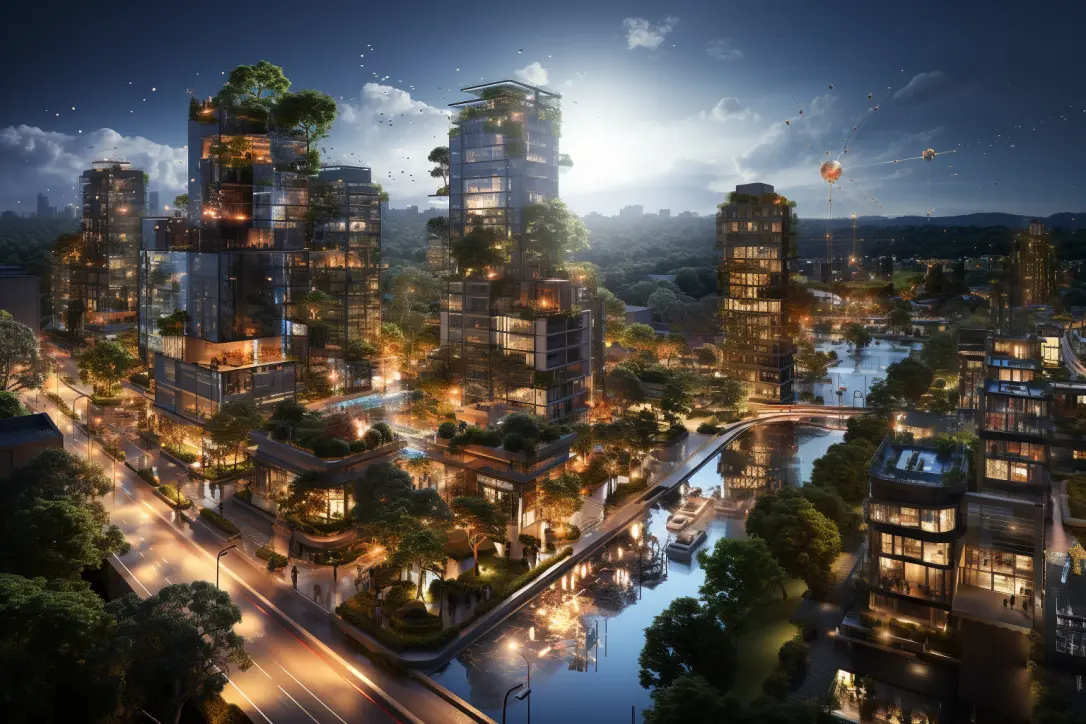The Indian real estate sector emerged as a pivotal indicator of the nation's economic vitality and industry-wide momentum in 2023. Leading the charge as the world's fastest-growing major economy, India witnessed unparalleled achievements across all real estate fronts as the year concluded.
Looking back, the onset of 2023 was marred by worldwide inflationary pressures, looming threats of a severe recession. Despite these challenges, the Indian real estate market showcased remarkable resilience and success throughout the year. Here's a summary of the year's end achievements.
The office space market in India experienced an unprecedented boom in 2023, with a staggering 63 million sq ft of leasing activity, shattering all prior records. The latter half of the year, in particular, saw heightened demand primarily from Global Capability Centres (GCCs) within the manufacturing/engineering, financial services, and technology sectors. This surge occurred amidst a relatively subdued year for third-party technology outsourcing. Flex spaces also saw a surge in demand, with a record-breaking 10.3 million sq ft leased. Collectively, flex spaces and GCCs contributed to approximately 55% of the office leasing volume in 2023.
All major cities reported strong leasing activity, with Bengaluru and Delhi NCR leading the pack. Chennai celebrated a record-breaking year, while Hyderabad, Mumbai, and Pune also saw significant activity. The net absorption of office space across Indian markets reached 42 million sq ft, a figure second only to the 2019 peak. This impressive performance, unforeseen just six months prior, signaled robust expansion and workforce growth across the sector.
Moreover, the green footprint in India’s Grade A office market surpassed 50%, fueled by efforts toward sustainable construction and decarbonization initiatives by sector stakeholders.
Retail leasing thrived as well, with over 7 million sq ft leased in malls and high streets, marking a ten-year peak. Brands pursued the growing middle-class consumer base with innovative store formats and international product offerings, expanding aggressively into tier 2 and 3 cities.
The logistics and industrial sector maintained steady growth, with Grade A compliant warehouses showcasing a low vacancy rate of 6% compared to the sector's average of about 10.6%. Driven by supportive manufacturing policies, the auto and engineering sectors increased their leasing share to roughly 30% in 2023. The demand for logistics in tier 2 and 3 cities grew, along with an uptick in the need for urban warehouses to meet rapid delivery expectations.
Residential sales soared to record heights, with apartment sales in the top seven cities reaching approximately 272,000 units, led by Bengaluru, Mumbai, and Pune. Despite a slight dip in affordability, with prices rising by 7-11% and interest rates remaining moderately high, India saw a significant interest in larger, more expensive homes, with those priced above INR 15 million selling fastest for the first time.
The underlying momentum in India's real estate market is closely linked to the nation's economic robustness. Key factors fueling real estate growth include the highest GDP growth forecast among major economies, a dynamic tech ecosystem poised to serve the global market, and a favorable business climate. India's real estate success story in 2023 has indeed captured global attention.

India's 2023 Real Estate Surge: Records and Resilience
Latest Post
Get in touchGet personalized
Get personalized
investment consultation
Leave your contact information and our consultants will contact you.
